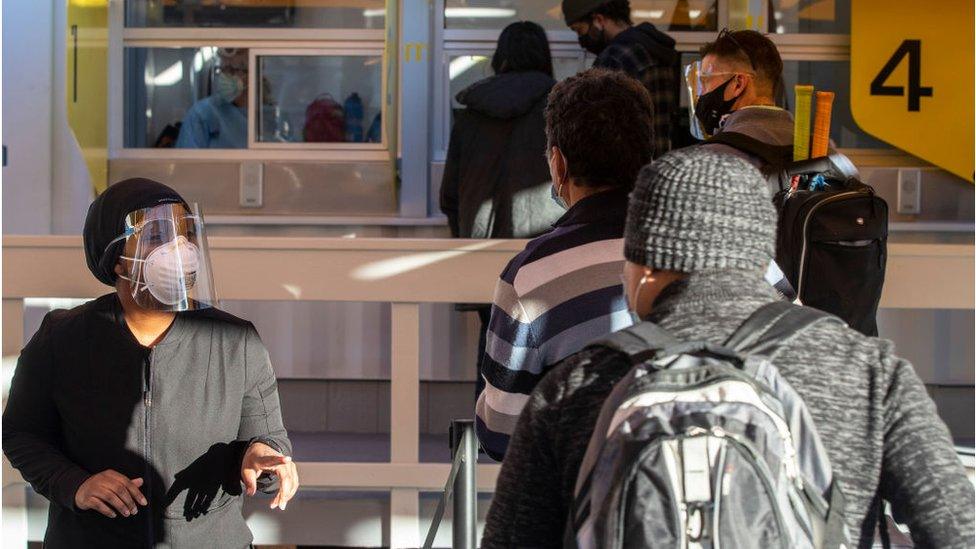Covid: The pandemic's young widows and widowers
- Published
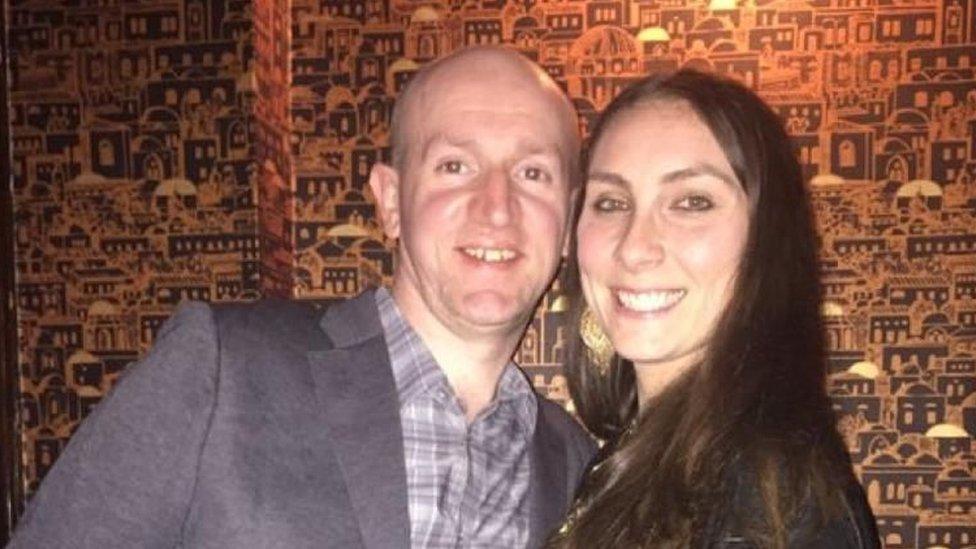
Pamela Addison with her late husband Martin
There have been over 430,000 deaths from Covid-19 in the US, and that includes many younger men and women whose partners have been left suddenly widowed. Alone and with young families to raise, they set up a Facebook support group. Two members spoke with BBC OS radio.
Pamela Addison lost her 44-year-old husband, Martin, in the early weeks of the pandemic.
"He was just the sweetest, kindest person out there," the mother of two says.
"He really loved life and loved being a dad. He even wrote a song about me which I found on his phone after he died. It was a beautiful thing to find because it just showed how much he loved me."
Martin fell ill on 22 March, developing a cough shortly after their daughter's second birthday.
Eventually diagnosed with Covid-19, the last time Pamela was with him was when he was being taken to hospital from their New Jersey home. She had called emergency services when she heard him struggling for air on 3 April.
Martin worked as a speech pathologist in a hospital, and it's thought he caught the virus there.
He spent 26 days in hospital, which Pamela says were "the most stressful days of my life".
"On our wedding anniversary I was talking to him over a Skype call while a lovely nurse was holding his hand," she recalls.
"Even though he was heavily sedated, I told him to keep fighting and that I loved him. He squeezed the nurse's hand and tried to open his eyes. That was the last conversation I had with him. He was one of the youngest patients in the ICU."
On 29 April, he went into cardiac arrest and died.
Pamela, 37, set up the Young Widows and Widowers of Covid-19 Facebook group to help her come to terms with his death.
"The grief creeps up on you when you least expect it. It's really difficult to know what to do with little children. The baby doesn't really understand yet. My two-year-old is quite resilient and seems to have coped. She said 'Mom, he couldn't get better'."
No age group is immune from serious coronavirus complications, or from dying from the disease. But the overall pattern is the older someone is, the greater their risk from Covid-19 - particularly over the age of 65 - and people with pre-existing conditions.
Jennifer Law, 35, in Texas, has five young children. Her husband, Mathew, died in November.
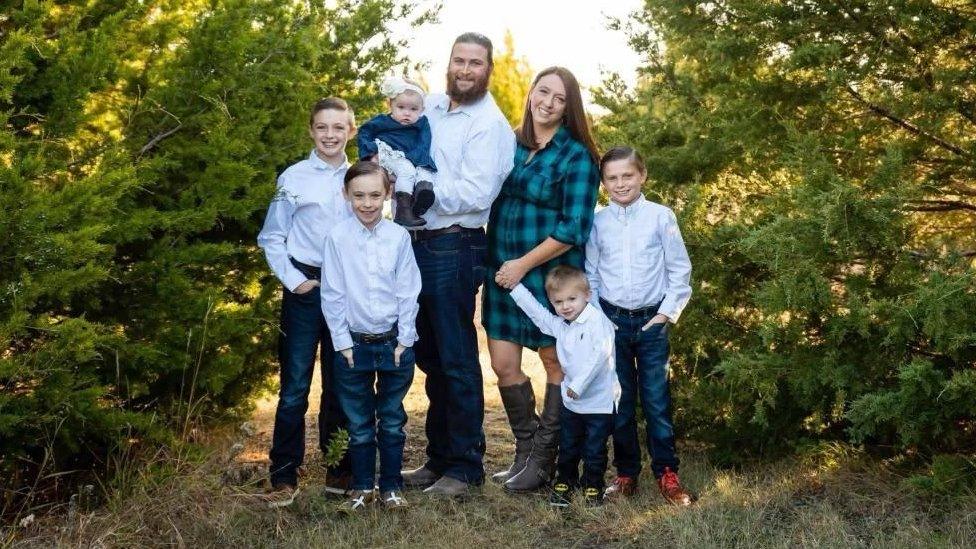
Jennifer Law, with her late husband and children
"We all got sick , the kids shook it off," she recalls. But on 9 November Mathew was admitted to hospital where he received plasma and the antiviral drug Remdesivir. Their hopes were raised when he came out of the intensive care unit - but then his condition deteriorated.
"On the evening of 27 November he was put on a ventilator, the trauma caused his heart to stop. He was revived but then his organs failed and he passed away on the 28th. The unexpectedness of it shocked me."
"My husband was amazing," she says. "He was the person that lit up a room. Everyone loved him."
They had known each other since they were young, and sat next to each other at school. They were heavily involved in their local church.
"For the last 23 years years I have known him and loved him, and for 13 of those years we were married."
Mathew spent a decade in the US Army, including two tours to Iraq in 2005 and 2009. The couple eventually moved back home to Texas where he worked as a mechanic fixing buses for the local school district.
When Mathew died, the reaction was "a true testament to who he was," she says. "To have people line our street to say goodbye because they were so touched by his life."
She says she and her children are now in therapy to learn how to cope with Mathew's sudden death.
For both Pamela and Jennifer, the Facebook support group has also been its own kind of therapy. It's grown from a handful of women to over two hundred members.
After their mother died, Vanessa had to look after her five younger siblings
"I posted in several Covid groups I was part of, and in the comments I saw so many more young widows basically say 'this is my story'," Pamela told the BBC.
"I thought - we need to start a group. I felt I needed to reach out to all these women and show them that they are not alone. That we're in this together, and we will help each other heal."
She has said that early on, she thought she was the only one , externaldealing with losing her husband and having to care for young children. She realised she wasn't after receiving a sympathy card from another widow, and felt there was a need for a place to help others cope with the "new normal".
For Jennifer, being part of the group helped with the "crippling" isolation and helplessness.
"Knowing that there are other people out there to support you, to love you, to say it's going to be OK - that's exactly what I needed. And that's what I found in this group."
Related topics
- Published3 January 2021
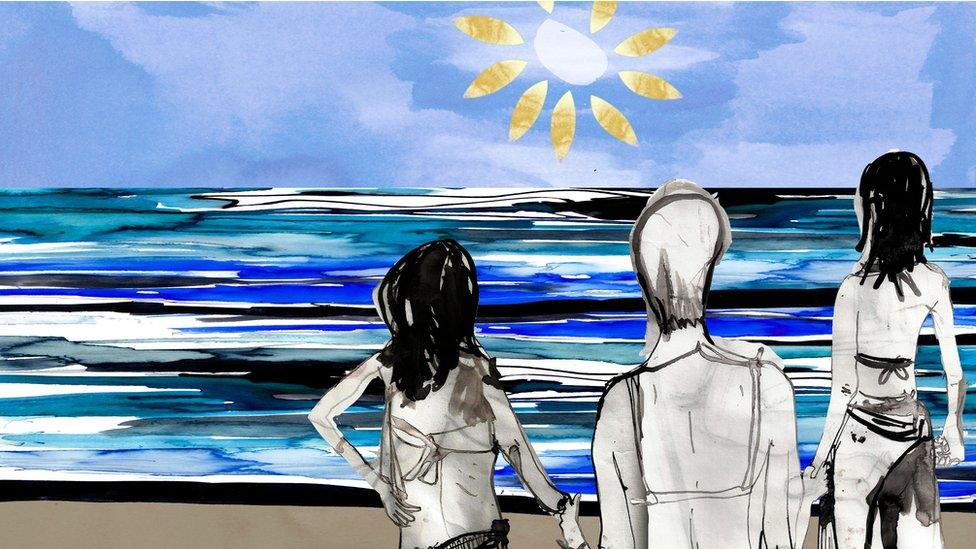
- Published8 December 2020
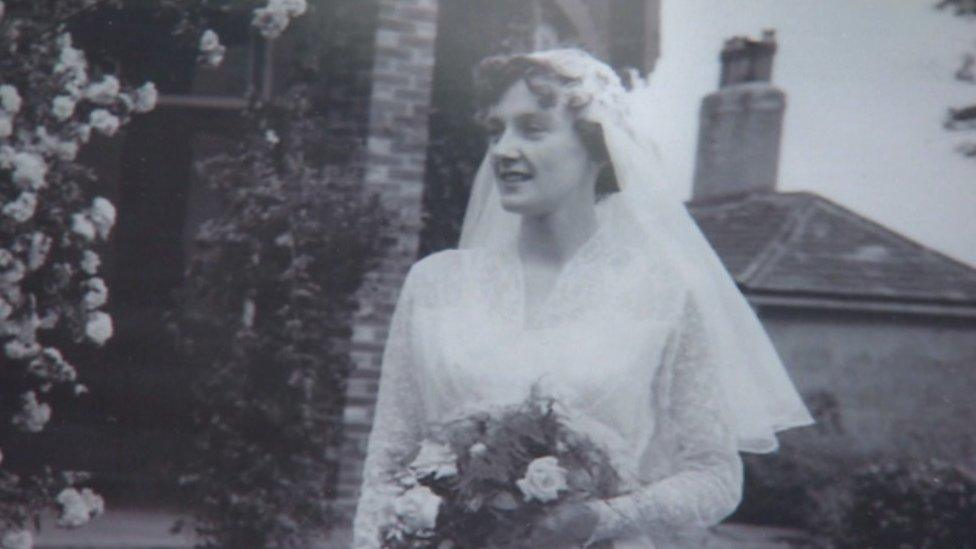
- Published26 January 2021
